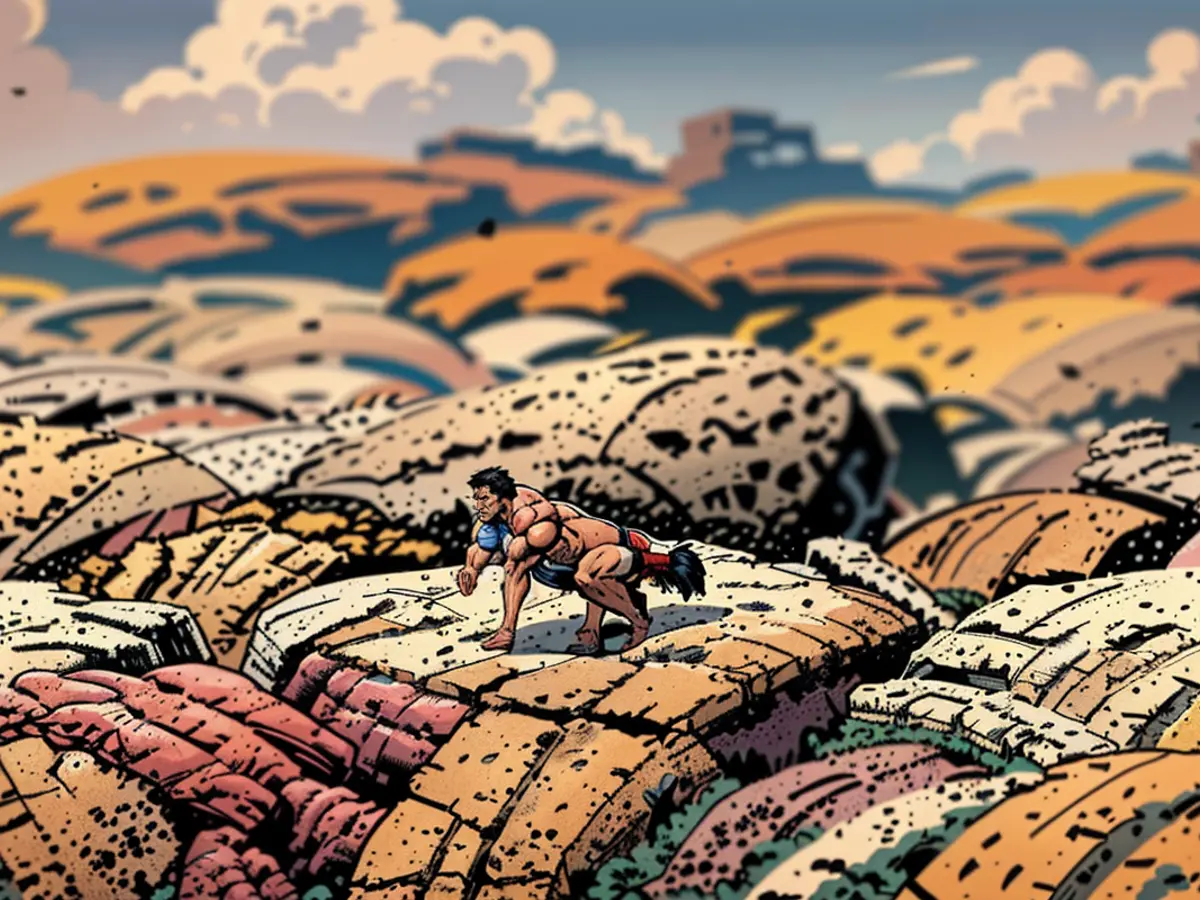Struggling with water scarcity, Greek experts sound the alarm
While water is still available, the outlook isn't swimmingly positive: The Mornos Reservoir, supplying fresh water to Athens, Greece's major city, has shrunk by around 25% over the past two years. According to the National Meteorological Service of Greece, the reduction is due to scarce rainfall, high temperatures, and mild winters with minimal snow, resulting in less melting water.
Satellite data from the weather service specialists reveal that the reservoir's surface area has decreased from nearly 17 square kilometers to approximately 12 square kilometers in two years. The most substantial decline happened within the past 12 months.
As a result, the once submerged village of Kallio has resurfaced, reports Open TV station. Meanwhile, the Aposelemi Dam on Crete and the artificial Lake Pinios on the Peloponnese peninsula are both experiencing significant drops in water level.
The dry spell has taken a toll on nature and human life in northern Greece. The famous salt lake Pikrolimni, which was previously renowned for tourism due to its mud baths, is nearly depleted. The Kilkis municipality has requested water conservation from its residents.
Emergency Announced
The crisis isn't confined to this region: The General Secretariat for Civil Protection has declared a water crisis emergency for 14 municipalities across the country, including popular tourist islands such as Crete, Sifnos, Leros, and Kefalonia.
Rain on the Horizon
Weather forecasters predict that rain will soon fall in various parts of the country, offering a promising sign amidst the drought. Alternatively, Greeks hope for the old saying, "A hot, dry summer will be followed by a cold, snowy winter," to materialize.
The dwindling size of the Mornos Reservoir is mainly attributed to the climate, notably the lack of rain, high temperatures, and mild winters. The water crisis in Greece has prompted an emergency declaration across numerous municipalities and tourist islands by the General Secretariat for Civil Protection.
Further Considerations
- Leakage and theft account for nearly half of Greece's drinking water loss, nearly double the EU average of 23%[1].
- Outdated infrastructure, including cracked irrigation canals and aging pipes, contributes to the crisis, losing over half of their supply[1].
- Climate change and its resultant irregular rainfall, intense summer heatwaves, and record temperatures exacerbate water scarcity, particularly in southern Greece[1][2].
- Overexploitation of groundwater resources has led to contamination and reduced sustainability, making Greece extremely reliant on annual rainfall[2].
- The agricultural hub of Argolida, producing a third of Greece's oranges, is severely affected by the water crisis[1].
- Ermioni Town, with 13,500 residents, has limited access to safe drinking water; most residents rely on bottled water, generating environmental concerns[1].
- Excessive chloride and sodium levels in saltwater pose health risks to individuals with hypertension or kidney issues[1].
- Farmers in drought-affected fields are drilling up to 300 meters beneath the ground in search of water, often encountering only saline remnants of freshwater aquifers[1].
- The crisis poses economic threats to Greece, particularly in the agriculture and tourism sectors[2].
- The EU has launched a comprehensive plan to battle the water crisis, which includes investigating water leakage and imposing a legally enforceable limit by the upcoming year[1][3].
- Greece has invested €1.5 billion in drinking water infrastructure since 2019, but digitized maps of underground pipeline networks are necessary for effective water management[1].
- The installation of desalination units is being considered, but addressing water leakage is a priority before any such move[1].
- Partnerships and innovation with the UAE to employ desalination plants and sustainable technologies are underway, with joint initiatives to discuss water resource management ahead of the 2026 UN Water Conference[4].
[1] European Environment Agency. (2020). Water Scarcity in Europe. Retrieved from
[2] Eurostat. (2020). Water and sewage. Retrieved from
[3] Euractiv.com (2020) EU pledges 30B EUR to fight water shortage in member states. Retrieved from
[4] Arab News. (2021). UAE, Greece to collaborate on water management and infrastructure. Retrieved from








